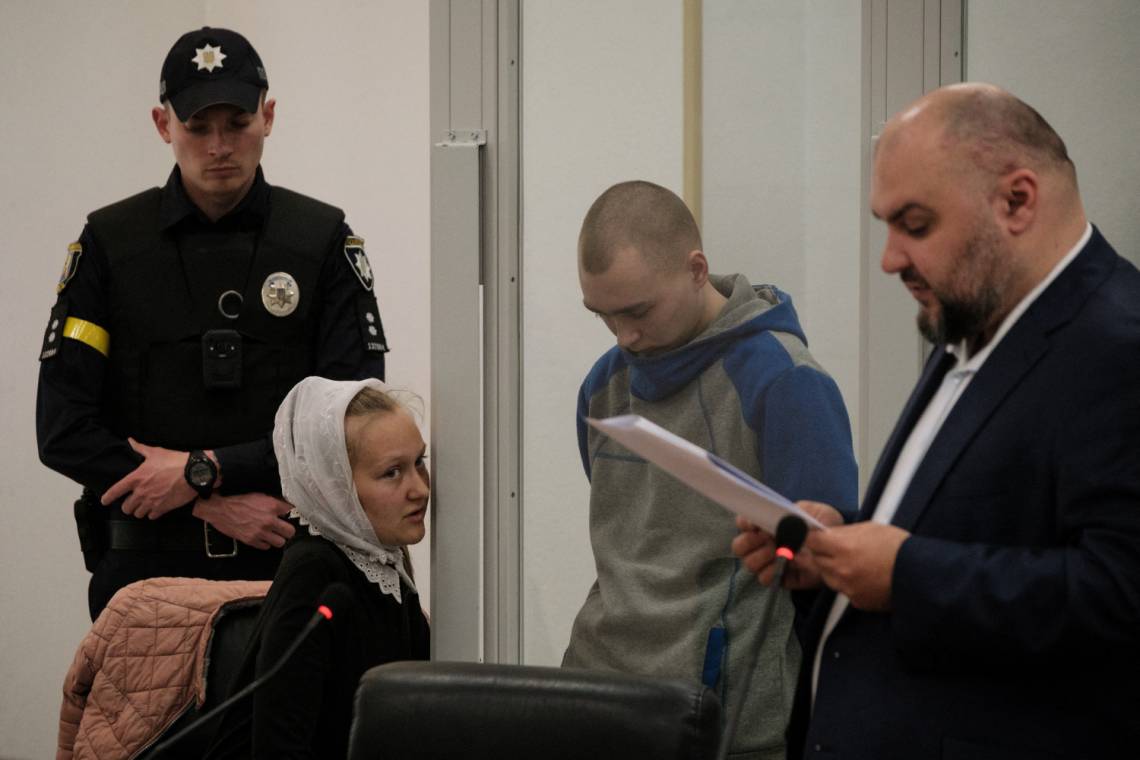With the wars in Ukraine and the Middle East, international criminal justice is back in the headlines. It had its golden age 30 years ago with the creation of international tribunals. Today, international justice procedures have become more complex, including non-judicial mechanisms for truth-seeking and reparation. They are constantly evolving, and it is up to the media to help people understand them. Those article and interview are taken from our 12th publication "Mediation", available at this link.
Created at Nuremberg in the aftermath of the Second World War, international justice – which tries the most serious crimes, such as war crimes, crimes against humanity and genocide – has evolved considerably over the last few decades. Today it involves not only legal proceedings, but also the search for truth, reparations and the duty of remembrance.
The UN criminal tribunals in The Hague and Arusha, set up in the 1990s and both relatively remote from the societies where the crimes were committed, have been succeeded by “special tribunals” (Sierra Leone) or “special chambers” (Bosnia, Cambodia) located in these countries. National courts, which are often more agile, have also dealt with international crimes, whether they are located in the countries where the crimes were committed (DR Congo) or in third countries exercising “universal jurisdiction” (e.g. Germany, France, Senegal...). And as the International Criminal Court slowly got under way to deal with these issues on a permanent basis, complementing national courts, a number of South African-style truth and reconciliation commissions were set up around the world to rule on mass violence, with the main aim of getting victims and perpetrators of the crimes to talk, establishing the facts, repairing the effects of the violence and preventing it from happening again.
Fondation Hirondelle has tried to play its part in this story, as we are convinced that providing understandable information on these complex issues helps the people and societies concerned rebuild their lives. The Hirondelle News agency, which we set up on the premises of the International Criminal Tribunal for Rwanda in Arusha, has been succeeded by Justice Info, a multilingual website that covers international and transitional justice processes worldwide over the long term. This field continues to evolve more than ever: trials for serious human rights violations no longer spare companies, which are being called into question for destroying the living environments of certain peoples. At the same time, truth commissions are expanding to cover new issues such as sexual abuse in the Church and reparations for formerly colonised peoples. This issue of Mediation situates our media work within this history of international and transitional justice and explains why, in a world riddled with conflict, we feel it is more important than ever to help the public understand them.
Editorial - Focus on the facts
“Not only must Justice be done; it must also be seen to be done.” Journalists play a crucial role in upholding this often cited imperative, which emphasizes that justice should not only be served but must also be transparent and visible, ensuring trust in the fairness of the legal system.
Journalists act as watchdogs, reporting on the administration of justice, helping the public understand the facts and nuances, and holding authorities and institutions accountable for their actions – and for their inactions.
In the case of transitional justice, this is no easy task. It involves grasping complex legal issues and making them accessible to audiences, sometimes in the face of threats and intimidation. The mechanisms of justice are often slow, making it a challenge to sustain public interest over a long time. Not least, reporting
such cases can involve bearing witness to the impacts of some of the worst human atrocities.
Fondation Hirondelle has the benefit of housing a team of highly experienced specialists in this field, in the form of our media Justice Info. As well as reporting on cases around the world, the team helps equip local journalists with the skills to cover issues for their audiences, be it in Colombia, Ukraine or the Democratic Republic of Congo. Impartiality is, as always, the cornerstone of our approach. Even when faced with the most appalling crimes, including those affecting their community, the journalist, like the judge, must focus on the facts.
Jacqueline Dalton, Head of Editorial Content at Fondation Hirondelle
Those article and interview are taken from our 12th publication "Mediation" entitled "Making sense of international and transitional justice", available at this link.




